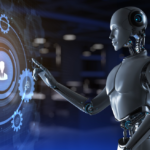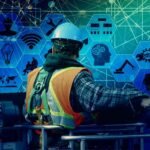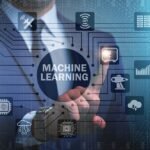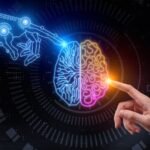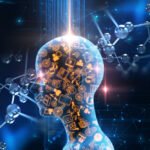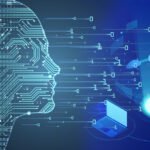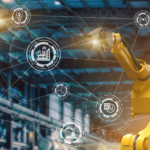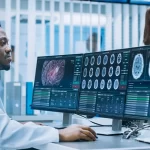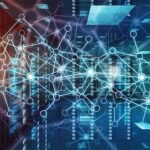Reopening the Economy: How AI Is Providing Guidance
The COVID-19 pandemic has been a global challenge that forced economies to shut down, causing widespread disruptions to businesses and livelihoods. As vaccination rates increase and infection numbers decline, many countries are cautiously reopening their economies. However, this process is not without challenges, as authorities must make data-driven decisions to prevent further outbreaks and ensure public safety. In this blog, we will explore how Artificial Intelligence (AI) is playing a crucial role in providing guidance for reopening the economy, enabling a safer and more efficient recovery.
- Predictive Analytics for Infection Patterns
AI-powered predictive analytics is proving to be a valuable tool in forecasting infection patterns. By analyzing vast amounts of data from various sources, including health records, mobility patterns, and social interactions, AI models can predict potential outbreaks in specific regions. These insights empower policymakers to make informed decisions about which areas can safely reopen and which may require additional restrictions or interventions.
Predictive analytics also help identify high-risk groups, allowing health authorities to prioritize vaccination efforts and allocate resources strategically. This data-driven approach enables a more targeted and effective response, reducing the risk of overwhelming healthcare systems.
- Monitoring Social Distancing and Mask Compliance
To ensure a successful reopening, it is essential to monitor and enforce social distancing and mask-wearing guidelines effectively. AI-powered surveillance systems equipped with computer vision can analyze real-time video feeds from public spaces and workplaces to identify instances of non-compliance.
These AI systems can alert authorities to potential hotspots where social distancing measures are not being followed, enabling them to take proactive measures to prevent outbreaks. Additionally, these technologies respect individual privacy by aggregating data and providing anonymized insights without tracking individuals’ identities.
- Contact Tracing and Exposure Notifications
Contact tracing has proven to be a critical strategy in containing the spread of COVID-19. AI-driven contact tracing apps can help identify and notify individuals who may have come into contact with an infected person. By automating this process, contact tracing becomes more efficient, allowing health authorities to quickly isolate potential cases and break transmission chains.
Moreover, exposure notification systems leverage Bluetooth technology to anonymously exchange data between smartphones. If a user tests positive for COVID-19, the system can alert individuals who have been in close proximity, enabling them to take appropriate precautions and seek testing.
- Adaptive Supply Chain Management
AI is revolutionizing supply chain management by optimizing the flow of goods and services during the reopening phase. As the economy restarts, businesses may face fluctuations in demand and supply. AI-driven supply chain management systems can analyze real-time data, such as consumer behavior and inventory levels, to make dynamic adjustments to production, distribution, and logistics.
By predicting demand patterns and identifying potential bottlenecks, businesses can minimize disruptions and maintain a steady flow of goods to meet consumer needs efficiently.
- AI-Driven Vaccine Development and Distribution
AI plays a significant role in accelerating vaccine development and distribution efforts. Machine learning algorithms analyze vast datasets to identify potential drug candidates, speeding up the drug discovery process. Moreover, AI helps in optimizing vaccine distribution by predicting demand, identifying priority populations, and ensuring equitable access.
Through AI-powered simulations, health authorities can assess various vaccination strategies and identify the most effective approaches to achieve herd immunity.










